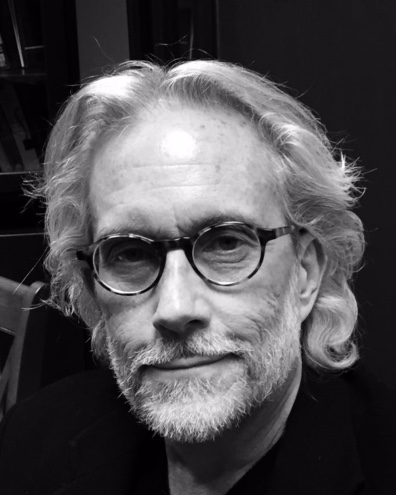Public figures across the political spectrum, from President Barack Obama to conservative commentator David Brooks, have cited theologian Reinhold Niebuhr and his philosophies as major influences on their worldviews.
During a Sept. 15 seminar with University of Virginia undergraduates, Eugene McCarraher, professor of humanities and history at Villanova University, asked, “Why do ‘very serious people’ like Reinhold Niebuhr so much?” McCarraher ultimately concluded that Niebuhr’s philosophy of political realism cannot provide us with what we need for our time.
Video of McCarraher’s talk, “Wisdom to Know the Difference: Why Reinhold Niebuhr Isn’t the Theologian We Need Today,” is now available on the Project on Lived Theology’s website here.
During his lecture over Zoom, McCarraher explained how Niebuhr’s version of the Serenity Prayer illustrates both philosophical strengths and limitations: the serenity that the prayer counsels, while inspiring to many people, can too easily turn into complacency and resignation, while the courage that the prayer espouses is too narrow a concept.
“As with so many of Niebuhr’s pronouncements, we’re all expected to stroke our chins and furrow our brows at its stringent gravitas,” said McCarraher. “Yet I think this prayer also includes everything I consider to be anemic and debilitating about Niebuhr’s political theology.”
According to McCarraher, Niebuhr was a radical firebrand as a young evangelical minister and had criticized postwar liberalism “as a philosophy of the middle-aged.”
In his 1932 book Moral Man and Immoral Society, Niebuhr advocated for the philosophy of political realism. He argued that the concept of American exceptionalism and the perceived connection between material success and divine favor are the most fatal delusions of all. As a result, our democracy might be short-lived unless we face the issues of social injustice, economic immobility, and imperialism. Niebuhr stated that the beloved community will have to wait until the end of history and that politics could serve as a means of damage control until then. Niebuhr called on American leaders to practice humility, circumspection, self-restraint, and realism in the meantime.
Despite this appeal to leaders, Niebuhr would go on to support World War II, anti-communism, and the development of nuclear weapons but would oppose the Vietnam War. McCarraher, during his lecture, contended that Niebuhr’s inability to go a step further and openly call for America’s withdrawal from Vietnam was actually a capitulation to realism as well as a lack of imagination about how society could be restructured. Cold War elites could in this way invoke Niebuhr in order to maintain public lawfulness via imperialism and militarism, especially when connected to national identity.
And so, according to McCarraher, public theologians and intellectuals must reclaim the language of political realism because Niebuhrian realism is not realistic or visionary enough.
During the subsequent question-and-answer session, McCarraher and the students discussed the role of guilt in pacifist politics, the political consequences of the original sin doctrine, the role of human finitude and fallibility in Christian realism, and Niebuhr’s influence on Martin Luther King, Jr., and theologians today.
McCarraher’s talk was part of “Theologies of Resistance and Reconciliation: Bonhoeffer, Niebuhr, King,” a UVA undergraduate seminar taught by Guy Aiken, Project on Lived Theology research fellow, and Charles Marsh, PLT director and UVA religious studies professor.
A professor at Villanova since 2000, Eugene McCarraher’s research has focused on social thought, capitalism, and religion in the United States. He has received fellowships from the Lilly Endowment, the Pew Charitable Trusts, the National Endowment for the Humanities, and the American Council of Learned Societies. In addition to his scholarly work, McCarraher has published reviews and essays in Commonweal, Dissent, the Baffler, the Nation, the Hedgehog Review, and Raritan. His two books are Christian Critics: Religion and the Impasse in Modern American Social Thought (Cornell University Press, 2000) and The Enchantments of Mammon: How Capitalism Became the Religion of Modernity (Belknap Press of Harvard University Press, 2019).
In addition to speaking at various PLT events, McCarraher has participated in PLT’s 2008 Spring Institute for Lived Theology and 2002 Lived Theology and Power Workgroup.
The Project on Lived Theology at the University of Virginia is a research initiative, whose mission is to study the social consequences of theological ideas for the sake of a more just and compassionate world.

